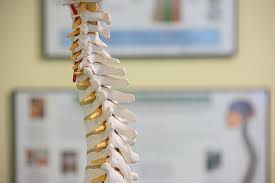Chiropractic Care Increases Self Perceptions Of Quality Of Life
A study in the May 15, 2009 issue of the Journal of Vertebral Subluxation Research finds that workers in high stress situations benefited greatly from a short course of chiropractic care.
The study is a follow up to a pilot (test) study in 2007 regarding the effects of chiropractic care on public safety personnel such as city, county and state police, firefighters, 911 operators and public safety administrators who perform their duties under high stress. The 2007 study found there was enough benefit to the personnel that a larger study was warranted.
In the latest study, 32 participants, male and female, completed a little more than 5 months of chiropractic care. At the beginning of the study, in addition to a full chiropractic examination, the participants filled out a Health Related Quality of Life questionnaire (HRQL).
The questionnaire measured how a participant perceived six different domains of their health including: Physical State, Mental/Emotional State, Stress Evaluation, Life Enjoyment, Overall Quality of Life, and a “Combined Wellness” assessment that represented a sum of all other domains. The participants also completed the questionnaire after eight and 16 visits.
22 of the 32 (69%) participants reported significant improvements in their HRQL scores. The remaining 10 (31%) reported no or negative change. All 32 (100%) showed significant improvements in their physiological/neurological chiropractic findings.
Interestingly, at the beginning of the study, the group that reported no changes in their HRQL scores had higher average scores than the group that reported significant change. This indicates they began the study with a higher level of perceived health and because of this didn’t report a change for the better. They felt fine already even though their physical/neurological findings were not significantly better than the group reporting change.
Commentary: The authors point out that the hypothesis in the follow up study was the same as it was in the pilot study. “That is, chiropractic care will provide demonstrable positive benefits in regard to physical/neurological state as well as self perceptions of improved health related quality of life and wellness domains among public safety personnel.”
Critics may argue that this test only proves that chiropractic care improves a person’s self perception of their quality of life, that is, it only makes a person think they feel better. If there were no improvements in their physiological/neurological chiropractic findings we might agree. But, we feel the fact that 100% of the participants showed improvement in objectively measured physiological/neurological chiropractic findings represents a pretty good correlation between functioning better and feeling better. In other words, get your body working better and all kinds of good things start to happen.













